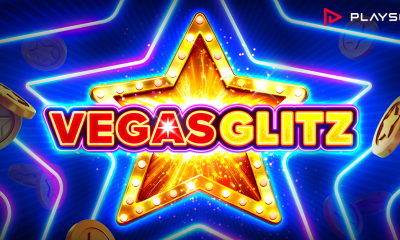Latest News
How Esports are Redefining the World of Sports

Esports have quickly grown from a specialised pastime to a worldwide phenomenon that influences everything from professional sports to entertainment. Digital tournaments are challenging conventional ideas of sportsmanship, competition, and athleticism since they draw enormous audiences and provide substantial cash sources.
In addition to captivating millions of fans globally, this developing sector is changing the sports industry’s economic environment and posing new opportunities and difficulties for players, fans, and corporations alike. Let’s explore the ways in which this virtual battlefield is redefining sports culture.
What are the Key Features of E-sports?
Electronic sports, or esports, differentiate themselves from traditional sports with a number of important characteristics. The digital platform, where games are played on PCs or consoles and allow for worldwide participation and viewing, is a major component of its attractiveness. Professional teams and lone players compete in well-known video games of all kinds, including first-person shooters, real-time strategy, and multiplayer online combat arenas. These competitions are extremely well-organized.
The utilisation of live streaming services and niche esports platforms, which enable real-time broadcasting to a global audience, making esports accessible to millions and cultivating a thriving community of watchers and supporters, is another distinctive feature. In addition to increasing audience involvement, this internet connectedness fosters a complex web of broadcast rights, sponsorships, and merchandise.
The Growth of Esports
Esports’ rapid expansion has drawn interest from a wide range of stakeholders, including all BP Group Casinos, who see the opportunity for significant financial gain in this rapidly expanding sector. In an effort to capitalise on the excitement of a younger, tech-savvy audience, casinos are exploring more and more to include esports betting in their services as esports competitions draw greater viewership. The popularity of esports has increased even further as a result of this integration; major event prize pools now match those of regular sports.
Casinos are utilising this trend to broaden their clientele and improve their entertainment offerings, as seen by their smart partnerships with well-known gaming events and esports teams. This mutually beneficial partnership highlights how much esports have impacted the gaming and entertainment industries as a whole and indicates that these industries will continue to expand and innovate in the years to come.
Esports as a Career: Opportunities and Challenges
A career in esports presents both significant hurdles and a wealth of potential. As the sport grows, it generates jobs for coaches, analysts, broadcasters, and marketers in addition to players, demonstrating a diverse ecosystem that caters to a range of interests and ability levels. Similar to conventional athletics, players may become celebrities and perhaps earn large sponsorships and prize money. But there are challenges along the way. The competitive environment is extremely tough, and maintaining a high standard of performance may be psychologically and physically exhausting.
Furthermore, compared to other occupations, players usually have shorter professional lifespans, necessitating ongoing skill improvement and flexibility. Resilience and strategic preparation are necessary in this environment if one is to effectively traverse its complexity and maintain a long-term career in this fast-paced sector.
Esports vs. Traditional Sports
Traditional sports and esports both have the fundamental excitement of competition and spectatorship, but they differ greatly in terms of execution and culture. Traditional sports have a rich history and are fundamental to both community identity and world culture. They are built on physical prowess and involve either outdoor or court-based activities. On the other hand, esports flourishes in virtual surroundings, stressing fast reflexes, strategic thinking, and collaboration. This also applies to the audience: esports supporters mostly view tournaments online, creating a social media community, whereas traditional sports fans often watch games in stadiums or on television.
The availability of esports, which everyone with internet connection and the necessary gear can play or watch, stands in stark contrast to many traditional sports, which are sometimes financially and geographically inaccessible. These distinctions show not just how different one is from the other in terms of appeal, but also how each may improve fan interaction and reach by learning from the other.
Predictions for the Next Decade in the Esports Industry
The esports business is expected to experience revolutionary expansion over the next ten years, driven by new technology and evolving societal attitudes. There are rumours that virtual and augmented reality might completely change the way fans watch esports by providing immersive experiences that combine digital and physical media. There’s also talk of artificial intelligence taking on a bigger role—possibly in strategy, coaching, and even in producing tailored watching experiences. With more money coming in from media companies and traditional sports teams hoping to take advantage of the lucrative esports business, global growth is also imminent.
Furthermore, more organised training and development programmes that resemble those in traditional sports may be implemented as long as academic institutions continue to acknowledge esports as a valid career path and varsity sport. These advancements have the potential to significantly elevate the field’s professionalism and stability of professions within the business.
The post How Esports are Redefining the World of Sports appeared first on European Gaming Industry News.
Latest News
1win Announced Token Launch on Solana and BNB Networks

International iGaming brand 1win has announced the upcoming launch of 1win Token, a native crypto asset designed to grow alongside the 1win ecosystem. The token to be deployed on both Solana and BNB Chain, offering benefits from both blockchain environments.
The airdrop criteria tasks are officially announced. It is available exclusively to users of the 1win Token TMA (Telegram Mini App) — a tap-to-earn mini-game that has attracted millions of participants since launch.
“The bigger the platform gets, the more revenue it generates, the more tokens are bought back and burned”, said Alex Filkin, Head of Crypto at 1win. “It’s a transparent model directly linked to real product usage and platform growth.”
1win Token was developed for iGaming-related utility and is designed for use across the 1win platform.
- Play-based usage: $1WIN can be used within games, sports wagering features, and lottery-style modes available on the platform.
- Cashback mechanics: Periodic cashback distributions are facilitated in tokens through an automated repurchase mechanism.
- Network compatibility: The token is supported across both Solana and BNB networks, allowing use with different tools and wallets.
To maintain long-term balance and utility, 1win Token uses two independent mechanisms: Weekly Buyback (for Cashback) and Daily Token Burn.
The mechanics of the Weekly Buyback are simple. Every week, 1win allocates a portion of platform-generated revenue, derived from both fiat and digital asset activity, to repurchase tokens from the open market. Repurchased tokens are then allocated to users who elect to receive $1WIN cashback.
When platform activity is conducted directly using 1win Token, cashback distributions are sourced from existing token-related platform allocations, and no repurchase activity occurs within that cycle.
Daily Token Burn works differently. Every day, 10% of all 1win Tokens spent on the platform — in games, lotteries, BattlePass, etc. — are burned forever. This helps reduce the total supply over time, making the remaining tokens scarcer.
The total supply is limited to 10 billion tokens, split between BNB Chain and Solana. This amount is locked in the smart contracts and can never be increased. All mechanics — buybacks, burns, and cashback payouts — are automated and fully transparent, handled by audited smart contracts on both blockchains.
Key Benefits for Users and Token Holders
For Players:
- Crypto-based deposit bonus programs with defined limits
- Expedited deposit and withdrawal processing, typically under 90 seconds
- Access to lottery-style features for 1win Token holders
- Eligibility for participation in a TMA-based airdrop mechanism
For DeFi users:
- Ongoing token demand mechanisms supported by weekly repurchase activity
- Dual-chain access across decentralized exchanges and liquidity pools
- Staking and reward mechanisms designed for on-chain participation
- Vesting frameworks intended to manage token distribution dynamics
The project has already received interest from participants across the crypto and gaming communities.
About 1win
With 9 years of industry expertise, 1win has grown into a global, crypto-friendly platform that delivers secure transactions across a broad selection of digital currencies. Operating across Asia, Latin America, and Africa, the platform offers a wide range of services adapted to regional audiences. In 2025, 1win welcomed MMA legend Jon Jones as global ambassador.
Website: https://1wintoken.com/
Contact
1win Token
https://1wintoken.com/
Carl Gatt Baldacchino Head of Account Management SlotMatrix
High-Voltage Reels: SlotMatrix Debuts Salty Sam’s Rage Bait

SlotMatrix, the premier casino content aggregator globally, is enhancing its unique portfolio by introducing Salty Sam’s Rage Bait, an energetic fishing experience that merges character-focused gameplay with dynamic Spin & Win features.
Situated in the chaotic waters overseen by fisherman Salty Sam, the game invites players to throw their lines over colorful reels filled with Wilds and Bonus icons. Each Wild that appears intensifies Sam’s fury, bringing him nearer to exploding with rage, activating the Spin & Win feature.
The core game offers thrilling speed, while hitting three, four, or five Bonus symbols triggers the Free Spins Bonus, granting eight, ten, or twelve complimentary spins. In this mode, extra Wilds fill the reels, enhancing the likelihood of triggering the Spin & Win feature and forming powerful combinations.
The Spin & Win function includes fish multipliers and bait symbols that work together to enhance nearby values via dynamic chain reactions. Multipliers can increase significantly, resetting spins and revealing substantial possibilities as the grid becomes populated with enhanced symbols.
Available solely via SlotMatrix, Salty Sam’s Rage Bait features EveryMatrix’s unique gamification features, such as leaderboards and free spins, and can be effortlessly incorporated with EngageSuite, the comprehensive player loyalty system.
Carl Gatt Baldacchino, Head of Account Management, SlotMatrix, said: “Salty Sam’s Rage Bait is a highly entertaining title and a strong addition for operators looking to keep engagement high. I’m confident it will be especially popular with players who are fans of fast paced, all action content.”
The post High-Voltage Reels: SlotMatrix Debuts Salty Sam’s Rage Bait appeared first on Eastern European Gaming | Global iGaming & Tech Intelligence Hub.
James Jelliffe Head of Slots at Stakelogic
Stakelogic reinvents vintage slot thrills with Mega Fortune’s Hold ’n’ Win twist

From fruit to wealth, traditional slot icons reappear alongside Coin collections and bonus elements.
Stakelogic has broadened its slot collection with the launch of Mega Fortune, a Hold ’n’ Win game that embraces traditional slot design while incorporating bonus features to maintain the momentum from one spin to the next.
Set on a traditional 5×4 grid featuring 20 paylines, Mega Fortune combines fruit, BARs, and sevens symbols with Gold and Silver Coins that are central to the game’s winning possibilities. The game has an RTP of as high as 96.03% and a top multiplier of x1,000.
Coin symbols enhance the primary experience, showcasing fixed values of up to 25 times the total wager and replacing each other to assist in forming winning combinations. The Hold ’n’ Win Bonus activates when five or more Coins appear anywhere on the reels during a single spin. In the feature, Coin symbols become固定不变, enabling wins to accumulate as more Coin values are gathered and summed to the total.
Aside from the bonus round, the game features the Sevens Sweep mechanic, in which a Red 7 Chest symbol can gather visible Coin values from the reels, generating chances for quicker win accumulation and maintaining excitement even when not in the Hold ’n’ Win feature.
For those wanting to speed up the gameplay, Mega Fortune features a Buy Bonus option, granting instant access to the Hold ’n’ Win feature, along with Super Stake , which increases the likelihood of activating Free Spins for half of the wager.
, which increases the likelihood of activating Free Spins for half of the wager.
James Jelliffe, Head of Slots at Stakelogic, said: “Mega Fortune is a game that players who appreciate our classic slot catalogue will enjoy and we have enough new gameplay features involved to keep the game rewarding. The core mechanics, multipliers and collection lock in with the Hold n Win bonus and make this game a winner for both old and new players.”
The post Stakelogic reinvents vintage slot thrills with Mega Fortune’s Hold ’n’ Win twist appeared first on Eastern European Gaming | Global iGaming & Tech Intelligence Hub.
-
Latest News6 days ago
N1 Partners Hosts the N1 Puzzle Promo Grand Final and Reveals the Helicopter Winner at iGB Affiliate 2026 in Barcelona
-

 Games Global6 days ago
Games Global6 days agoGames Global and Stormcraft Studios extend the supernatural franchise with Immortal Romance: Sarah’s Secret Power Combo
-

 Amusnet6 days ago
Amusnet6 days agoWeek 4/2026 slot games releases
-

 ADG7 days ago
ADG7 days agoArizona Department of Gaming Names Juan Carlos Estrada as Boxing and Mixed Martial Arts Executive Director
-

 Anton Ivannikov CPO at Playson7 days ago
Anton Ivannikov CPO at Playson7 days agoPlayson’s Vegas Glitz Shines with Dual Bonus Features
-

 Battle Royale7 days ago
Battle Royale7 days agoPrime Rush Goes Live in Early Access, Bringing a Brazil-First Mobile Battle Royale to Players
-

 Blueprint Gaming7 days ago
Blueprint Gaming7 days agoUnlock Features and Riches with Blueprint Gaming’s Gold Strike Express™
-

 AFCON 20257 days ago
AFCON 20257 days agoAFCON’s month of football did not lift iGaming demand — Blask data analysis






























